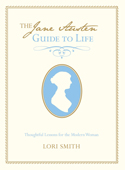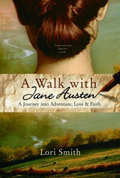“I wonder that the very pride of this Mr. Darcy has not made him just to you! — If from no better motive, that he should not have been too proud to be dishonest, — for dishonesty I must call it.”
“It is wonderful,” — replied Wickham, — “for almost all his actions may be traced to pride; — and pride has often been his best friend. It has connected him nearer with virtue than any other feeling. But we are none of us consistent; and in his behaviour to me, there were stronger impulses even than pride.”
“Can such abominable pride as his, have ever done him good?”
“Yes. It has often led him to be liberal and generous, — to give his money freely, to display hospitality, to assist his tenants, and relieve the poor. Family pride, and filial pride, for he is very proud of what his father was, have done this. Not to appear to disgrace his family, to degenerate from the popular qualities, or lose the influence of the Pemberley House, is a powerful motive.”
Elizabeth and Wickham, at her Aunt Phillips’ house
Pride and Prejudice, Vol. 1, Ch. 16



 A Walk with Jane Austen: A Journey into Adventure, Love, and Faith
A Walk with Jane Austen: A Journey into Adventure, Love, and Faith